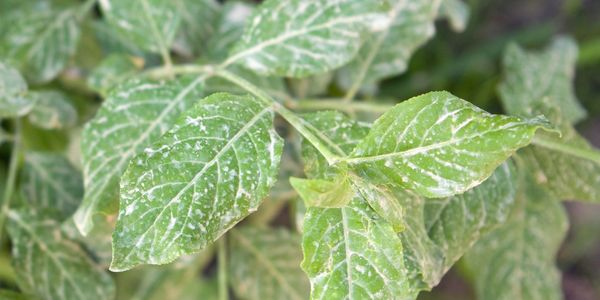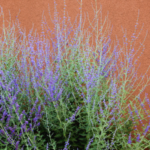Honeydew on plants is typically a sign of an insect infestation. But what does it mean if you’ve noticed honeydew on your plants but can’t find any bugs?
If there’s a sticky liquid on your plants but you don’t immediately notice any aphids, your plant might have an infestation of scale bugs, which are very small and easy to miss. If the liquid on your plants isn’t sticky, however, it could just be guttation, which is a plant’s normal process of eliminating extra water.
In the rest of this article, we’ll talk more about how to know whether your plant has honeydew or guttation.
Why Is There Honeydew On My Plant, But No Bugs?
If you’re familiar with honeydew on plants, you probably also know that it’s caused by harmful insects. Here are some bugs that may cause honeydew on your plants:
- Adelgids
- Aphids
- Scales
Knowing which insects cause honeydew is the first step in deciding how to solve this sticky problem. Adelgids resemble aphids, but they only infest conifer trees; unless you’re dealing with honeydew on a pine or hemlock tree, adelgids aren’t the cause.
Aphids are the most noticeable of honeydew-causing insects. If you’ve inspected your plant and there are no aphids under the leaves or on the stem, the honeydew is caused by something else.
Whie most gardeners know about aphids, not everyone is familiar with scales. These tiny insects feed on the sap from plants and excrete that sticky honeydew substance.
Scales are less noticeable than aphids because they are very small. Most scales are only mobile for a short time, so they also don’t move around like aphids do.
Are Scales Causing Honeydew On My Plant?
So how do you know if scales are causing the honeydew on your plant? The first step is to confirm that there are scales on your plant.
Scales form a scale-like protective covering to shield themselves (hence their name), making them easy to miss. In fact, scales often seem like bumps on the surface of the plant.
To know if you’ve got scales on your plant, you’ll want to closely inspect the undersides of the leaves and the stem of the plant. If you notice small, brown, round lumps in these areas, you may have scales.
Is Guttation Causing Honeydew On My Plant?
If you can’t find any scales or aphids on your plant, you might not have a pest infestation after all. Instead, you may be noticing a phenomenon called guttation on your plant.
Guttation is a plant’s natural process of eliminating excess water from its leaves. The water is pushed out through tiny openings in the leaves; this helps keep the plant healthy in high humidity conditions.
While honeydew is a sticky secretion, guttation is a clear, water-like substance. When trying to determine whether you’re dealing with honeydew or guttation, take careful note of the consistency of the liquid. If it’s sticky, it’s honeydew; if it’s not, it’s most likely guttation.
The good news is that guttation is a normal, healthy occurrence. There’s nothing to worry about if you notice guttation on your plant.
Final Thoughts
If your plant has a sticky honeydew substance on its leaves, there are definitely bugs somewhere on the plant. If you don’t notice any aphids, it’s probable that there are scale bugs on your plant. However, if the liquid isn’t sticky, it’s just guttation, which is completely harmless.



